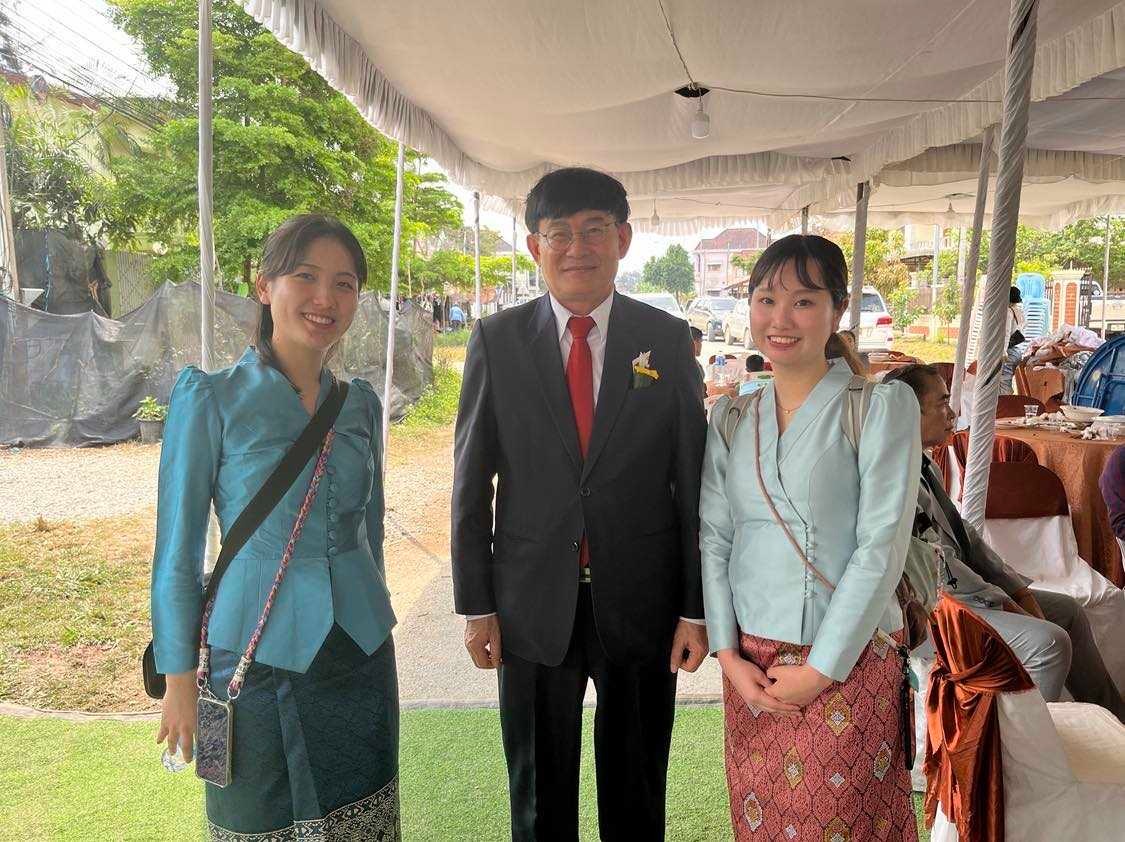Pilot study
"Anthropological Studies about Interspecies Care: Human-Honeybee Relationship in Japan"
R6 2-2 (R6 AY2024)
| Project Leader | Ria Tsuzuki (Kyoto University, Graduate School of Human and Environmental Studies) |
| Research Project | Anthropological Studies about Interspecies Care: Human-Honeybee Relationship in Japan |
| Countries of Study | Laos |
Outline of Research
This study examines the relationship between beekeepers and bees in Laos Shenkwan as a case study, considering the support received from international aid for beekeeping practices through the lens of technological and tool transformation. It aims to present a new perspective towards symbiosis between humans and nature. In this pilot study, efforts are being made towards selecting research sites, conducting meetings with local researchers, capacity building, and obtaining multi-entry visas and research permits for a long-term stay starting from the fiscal year 2025.
Purpose of Research, Its Significance and Expected Results, etc
This study aims to analyze beekeeping and the human-bee relationship in the Xieng Khouang region of Laos, focusing on the impact of traditional beekeeping practices and the technological changes introduced by international aid. The primary goal is to elucidate how the techniques and tools used for domesticating bees contribute to a new form of symbiosis between humans and nature.
The uniqueness of this research lies in two main aspects. First, it reevaluates the domestication of small creatures, such as insects, through specific technologies and tools like beehives, an area often overlooked by previous studies. This study will analyze how beehives developed in Japan for maintaining bee well-being are adapted for monetized beekeeping in Laos, revealing how mutual well-being between humans and bees is achieved. By examining the adaptation of these beehives in Laos, the research will highlight the dynamic interactions between traditional practices and modern technologies.
Second, the study relativizes the conventional environmental conservation ideology associated with beekeeping by focusing on the actual practices of beekeepers. While previous research has primarily framed beekeeping as an activity aimed at environmental conservation, this study emphasizes how beekeepers enjoy their relationship with bees and adapt their techniques accordingly. By focusing on the practical aspects of beekeeping, the research aims to provide a more nuanced understanding of how beekeepers interact with their environment and the bees they care for.
The research will be conducted through a combination of literature review and fieldwork. The literature review will involve organizing the history and current state of beekeeping in Laos, providing a comprehensive overview of the evolution of beekeeping practices in the region. The fieldwork will involve detailed examination of the techniques and tools used for bee domestication, focusing on how these have changed over time and how they are currently being implemented in Laos.
By doing so, the study not only explores new relationships between humans and nature but also provides valuable insights into the adaptation and development of beekeeping technologies. This research aims to contribute to a better understanding of the intricate balance between traditional knowledge and modern practices, highlighting the potential for innovative approaches to sustainable beekeeping. Ultimately, the findings are expected to inform future initiatives aimed at promoting sustainable beekeeping practices that benefit both humans and bees.
Through this comprehensive approach, the study will shed light on the broader implications of beekeeping for environmental conservation, economic development, and cultural heritage in Laos. The insights gained from this research will be valuable for policymakers, practitioners, and scholars interested in the sustainable management of natural resources and the promotion of human and ecological well-being.




